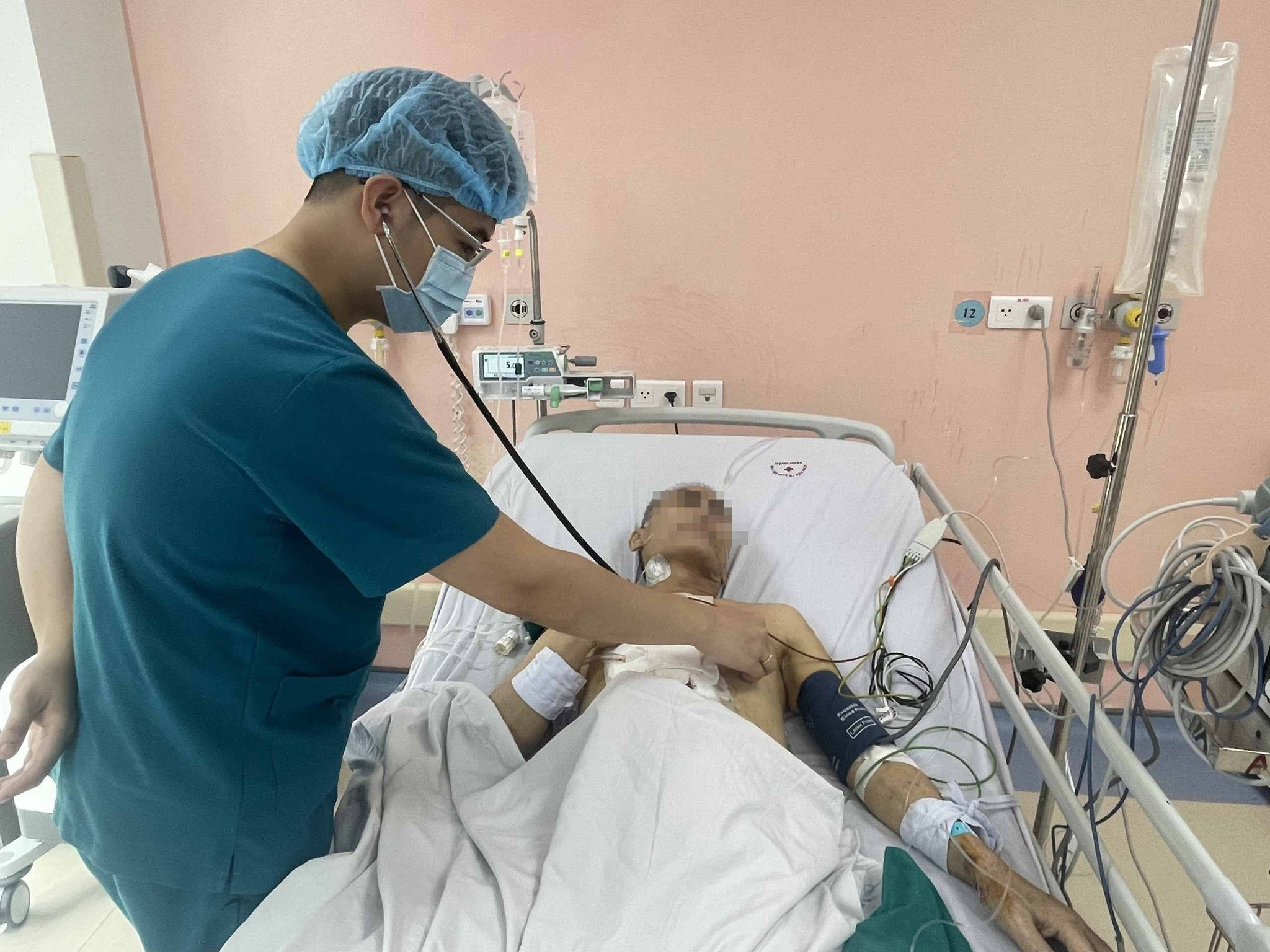The risk of increasing the disease that kills the most Vietnamese people on a hot day
Extreme temperatures increase the risk of health problems, especially for people with chronic medical conditions, including cardiovascular disease.
According to the Centers for Disease Control and Prevention, in this country, each year, the interaction of high temperatures and cardiovascular disease contributes to about a quarter of heat-related deaths. The higher the temperature, the greater the threat.
A recent study in the journal Circulation evaluated seven-year cardiovascular mortality in Kuwait, where daytime temperatures can reach over 40 degrees Celsius during the hottest months. The researchers found a link between increased temperature and the risk of cardiovascular death, most of which occurred between temperatures between 35 degrees Celsius and 43 degrees Celsius.

A doctor at 108 Hospital examines a patient with heart failure. Photo: BVCC
How does hot weather affect the heart?
Exposure to high temperatures not only increases the risk of heat exhaustion and stroke, but can also place a particular burden on heart health. It puts pressure on the cardiovascular system by losing water through sweat. High temperatures cause the heart rate to increase significantly and the heart to work harder. This can increase the risk of angina attacks, arrhythmias, and even heart failure.
Protect yourself and your heart when the temperature rises
While exposure to high temperatures and heat waves affects everyone, people with existing cardiovascular problems increase their risk of heat-related illness and hospitalization. Therefore, for this group of patients, it is especially important to try to follow basic strategies to stay cool, including:
- Follow the weather forecast for special times hot weather and stay indoors on those days. If you must go outside, evenings and early mornings are usually the coolest times of the day. Rest in the shade whenever possible.
When outside, try to drink 1 sip of water (about 20ml) every 20 minutes. Set a timer to remind you.
If you have heart failure, ask your doctor how much fluid you should drink each day, as fluid can build up and cause swelling. If you take diuretics, ask how much you should take in hot weather.
Avoid carbonated soft drinks or fruit juices and limit alcohol. Carbonated soft drinks and fruit juices can slow the absorption of water from the digestive system into the bloodstream. While research is limited, some studies have found that drinking too much alcohol can increase the risk of heat stroke in hot weather.
- Protect your skin. Sunburn affects the body's ability to cool down and increases dehydration. Wear a wide-brimmed hat, sunglasses, and light, light-colored, loose-fitting clothing. Also, apply plenty of broad-spectrum sunscreen or a UVA/UVB sunscreen with SPF 30 or higher to all exposed skin 30 minutes before going outside. It should be reapplied every hour after going outside.
For people with cardiovascular disease, it should be noted that when symptoms become worse (difficulty breathing, chest pain, palpitations, even fainting ...) in hot summer days, it is necessary to go to the facility immediately. medical care to quickly detect and promptly handle possible risks and accidents.
MSc Tran Quoc Quy, Department of Cardiovascular Resuscitation, Military Central Hospital 108










